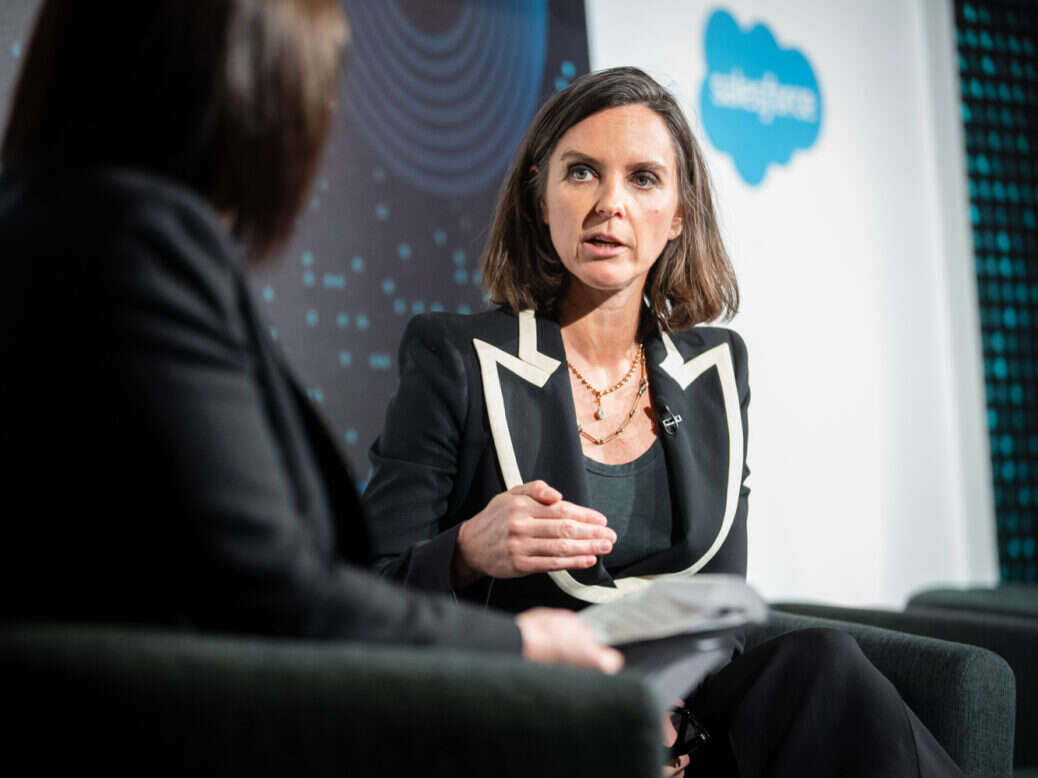
The chief executive of Channel 4 has insisted that young people are “a natural and voracious audience for news”.
Alex Mahon said that research carried out by her organisation “backs this up” and that 16 to 24-year-olds “care about the same world issues as we do”.
But she said young audiences do want information delivered differently to older ones and laid out Channel 4’s strategy for capturing their attention.
Mahon was speaking at the Deloitte and Enders Media and Telecoms Conference in London on Thursday, where she and three other public service broadcaster (PSB) leaders were asked to reflect on the demands on public service media.
How Channel 4 approaches getting news and information to young people
Mahon told the audience that Channel 4 has a “unique duty” to young audiences, and that “our recent discussions with government ha[ve] confirmed the importance and centrality of them to how we fulfil our public service remit”.
Younger viewers, she said, have “had video mainlined into their day their entire lives”, prompting Channel 4 to commission research into their viewing habits.
That research, as well as work by Ofcom, showed that “half of Gen Z’s waking hours are spent looking at a screen for video – and typically more than one screen,” Mahon said.
She also said the research found that in the UK 16 to 34-year-olds watch “almost seven hours of video a day” and that “close to two-thirds of what they watch is served up by purpose-built algorithms”.
The study also found that young audiences “are constantly on the move, and they’re in touch with each other all the time, and that makes them a natural and voracious audience for news and information – not just absorbing it, but also socialising it and contextualising it.”
[Read more: ‘No evidence’ youth not interested in current affairs but ‘lots of people avoid some of the news, some of the time’]
Mahon said her figures showed that young viewers “like news specific to their generation’s interests, but they also care about the same world issues as we do”.
She counted among those interests “mental health, gender, sexuality, body image, climate and ethical consumption”.
And she said the research found young viewers “want news clearly informed by facts, they want it neutrally delivered, they want to discover their own point of view rather than be fed stories that are laced with prejudice or stereotypes or what they see as tired media agendas or clickbait”.
Mahon said Channel 4’s response to these preferences was to commission content on topics that interest young audiences, that they can identify with and that is distributed on the platforms where they spend time.
Email pged@pressgazette.co.uk to point out mistakes, provide story tips or send in a letter for publication on our "Letters Page" blog
